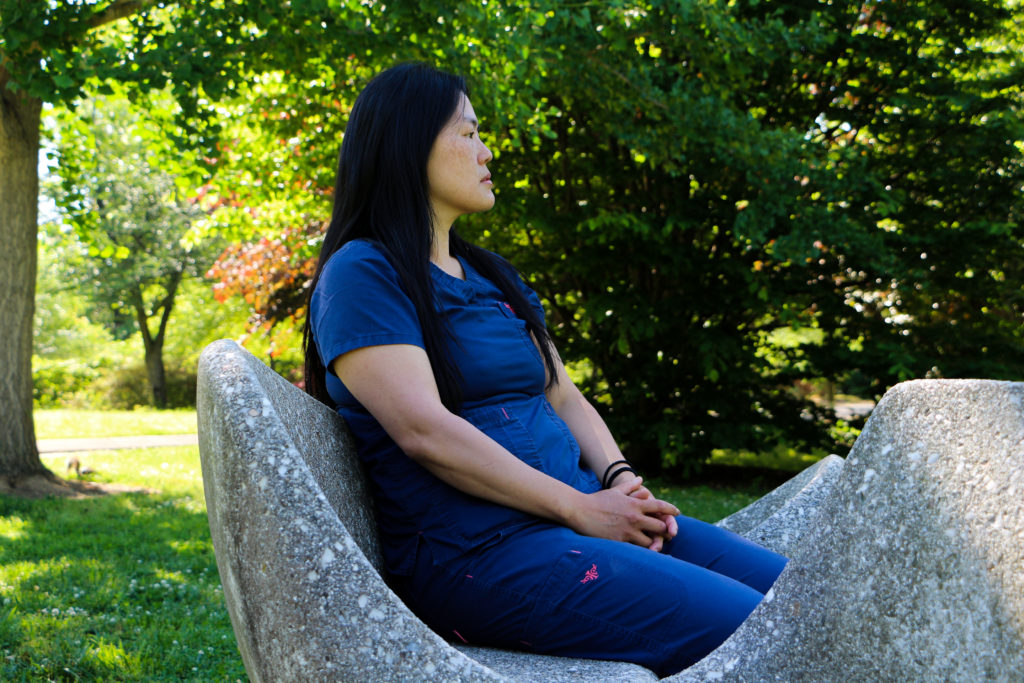
Earlier this year, right before Roe v. Wade was overturned, WPLN profiled two sisters who became pregnant at young ages. One had an abortion, one didn’t — and their lives took different paths.
When Fanny Sung reached out just weeks before Tennesseans lost access to abortion, it wasn’t to tell the story of her and her sister.
She wrote because she and her husband had been trying to have another baby — it would be their fourth child.
“I feel very fortunate to have the family that I have and we’re all healthy,” Sung says. “And it feels greedy almost to kind of push for another.”
Over the course of one year, she got pregnant three times. And each time, she miscarried. For two of them, she took medication to complete the miscarriage.

Fanny Sung and her husband were trying to have a fourth child, but she had three miscarriages.
Fanny says she wanted to keep trying — she has always wanted four kids.
But then the Supreme Court decision tipped the scales.
“Once the decision was made, it felt like it just added another layer of complication on something that was already so complicated,” she says. “There was just this extra barrier.”
Fanny just turned 40, and didn’t want to risk being forced to cross state lines if there were problems with her pregnancy. She knows it’s just one example of the ways that overturning Roe alters someone’s life.
“I feel some sadness, but I also feel like I’m getting to a place of acceptance,” she says. “I feel more angry for other people than I do for myself, you know?”

